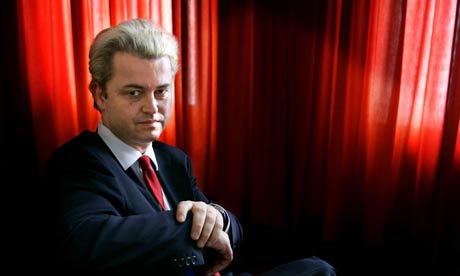
So, at long last on to John Ford. Our first encounter - as a blog, anyway - with one of America's most legendary, greatest and certainly most influential directors is his iconic
My Darling Clementine (1946), his lyrical, elegiac account of the confrontation between Wyatt Earp and the Clanton Brothers. This is my second viewing of the film, and while a first watch left me cold, the rewatch caused me to completely revise my opinion. Although inevitably dated and hokey in spots (not to mention being among the historically inaccurate accounts of a real-life event out there),
Clementine still works, not only as a showcase of one of America's legendary directors at his creative peak, but also as perhaps
the best articulation of the old school myth of the American West.
The film tells a simplified version of the Earp Brothers' vendetta against the Cowboy gang, which turned much of Arizona Territory into a war zone throughout the 1880's. Wyatt Earp (Henry Fonda) and his brothers James (Don Garner), Virgil (Tim Holt) and Morgan (Ward Bond) are cattlemen moving West to start a new life, when they run afoul of Old Man Clanton (Walter Brennan) and his boys, a gang of thieves and cattle rustlers. The Earps spend a night in the raucous mining town of Tombstone, only to have James murdered by the Clantons - leading to Wyatt's appointment as town Marshall. He befriends Doc Holiday (Victor Mature), a shady, tubercular doctor-turned-gunfighter with a death wish, while trying to civilize Tombstone into a proper town. Also arriving is Clementine Carter (Cathy Downs), an old flame of Doc's who finds herself more attracted by the steady, heroic Wyatt than the increasingly reckless and fatalistic Doc. This all leads to the inevitable Gunfight at the OK Corral, where the Earps and Doc seek a reckoning slimy Clantons.
My Darling Clementine epitomizes the poetic, optimistic ideal of the American West. The Earps are basically good people driven to violence, rather than the conflicted, morally ambiguous gunmen history knows them as; their shady past as lawmen in the Midwest isn't even mentioned, and their relationship with the even shadier Doc is jettisoned entirely. Scenes like the lengthy Church christening and square dance (complete with the ubiquitous
Shall We Gather at the River?) and the rather bland Clementine character may seem hokey or unnecessary to modern audiences, but they definitely serve a purpose in Ford's world: the inevitable progress of the American frontier relies on the coming together of people to form a stable community, the establishment of institutions like family and church, and a good man like Wyatt Earp to keep the peace. Scum like the Clantons are exceptions rather than the rule, and all Tombstone needs is a good man like Wyatt Earp to exterminate them, and life will continue its inevitable advance towards prosperity and progress. Relics of the past like the sultry saloon girl Chihuahua (Linda Darnell) and the tragic Doc have a place in settling the frontier, but no place in the future that results - an idea Ford would return to again and again, with increasingly tragic results (John Wayne in
The Searchers epitomizing this). Ford's sense of idealistic liberalism and warm, optimistic faith in humanity is in full flower here; the simplicity of the message is what makes it work, even if jaded 21st Century audiences may dismiss or snicker at it.
By the '50s and '60s, this triumphalist view of the West was being challenged from all corners, from Anthony Mann's "adult Westerns" (
The Tin Star,
The Naked Spur) to the cynical, violent
Vera Cruz,
The Magnificent Seven and
The Professionals, to the
enfant terrible Sam Peckinpah (though his work is much more Ford-like than most of his peers) and the Spaghetti Westerns of Sergios Leone and Corbucchi. Even Ford himself, in his later works like
The Searchers,
The Man Who Shot Liberty Valance, and
Cheyenne Autumn would show this myth to be ultimately hollow and empty - as the Cold War dragged on and America slipped into the violent chaos of the '60s, the idea of America as fundamentally good and virtuous became harder for many to swallow. But it's very much to the credit of Ford that through his films, the myth still endures - and however inaccurate or hollow it ultimately is, it remains a powerful one, a metaphorical representation of America as a force for good, progress, truth and virtue - the America we all wish existed, even if its reality is much darker or morally ambiguous.
The Wyatt Earp story has been retold time and again by Hollywood, from the straight re-tellings of
Gunfight at the OK Corral and
Tombstone to the revisionist
Hour of the Gun,
Doc and
Wyatt Earp (even an episode of
Star Trek would re-enact the famous OK Corral showdown). In truth, of course, the OK Corral gunfight was merely a bloody skirmish in a much larger land war, where the Earps, Doc Holliday and various other confederates shot it out with the Cowboys, a loosely-organized gang of gunfighters, outlaws, cowpunchers and rustlers for political power in Arizona Territory. However,
Clementine never professes to be a history lesson; its mythic representation of the Earps as a righteous force seeking justice with their terrible swift Peacemakers is historically dubious, but as part of a larger fable of a young, growing America it has always been important.
John Ford is at the very top of his cinematic game. The cinematography by Joe McDonald is dark, moody, and heavily atmospheric - more fitting at times for a
film noir than a Western. Certainly, however, Ford makes the usual striking use of his favorite locations in Monument Valley for the outdoors and landscape sequences. The movie is largely bereft of the bumptuous, overwrought comedy that plagued a great deal of his work (the Cavalry Trilogy,
The Searchers, and
The Quiet Man), which only benefits the film; a much subtler, gentler humor is well-utilized here. The film also has its share of iconic Western moments - notably, the initial showdown between Wyatt and Doc at the bar, and the wonderfully executed climactic gunfight, shot entirely without music, ambient sound and long shots building suspense as the Earps and Doc march to their date with destiny.
The cast is top-notch. Henry Fonda gives one of his most iconic roles, playing Earp as the straight-arrow, righteous Marshall with a clear sense of right and wrong. Victor Mature's performance as Doc Holliday is a bit off at times - he's never really convincing as the tubercular, trigger-fingered dandy gunfighter we know (or at least expect) Doc to be, but to his credit he brings a lot of dramatic weight and gravitas to the part. Walter Brennan gives us a truly nasty villain as Old Man Clanton, his scruffy brood including John Ireland, Grant Withers, Fred Libby and Mickey Simpson. Though not remotely convincing as a Mexican, Linda Darnell gives a fiery and memorable performance as bad girl Chihuahua; she's certainly more interesting than the fairly milquetoast Cathy Downs, whose Clementine never really rises above the level of stock love interest (and where is Josie Earp in all this, anyway?). Also in the cast are Tim Holt and the great Ward Bond as Earp's brothers, and Alan Mowbray in an amusing bit as a Shakespearean actor who runs afoul of the Clantons.
I hope to return to Ford and deal with some of his other great films -
Stagecoach,
The Searchers,
The Man Who Shot Liberty Valance, to name but a few - but
Clementine certainly isn't a bad introduction. It's one of the best and most straightforward representations of Western mythology, and it's well-made and damned entertaining to boot. You can't ask for much more than that.
Rating: 8/10 - Highly Recommended








